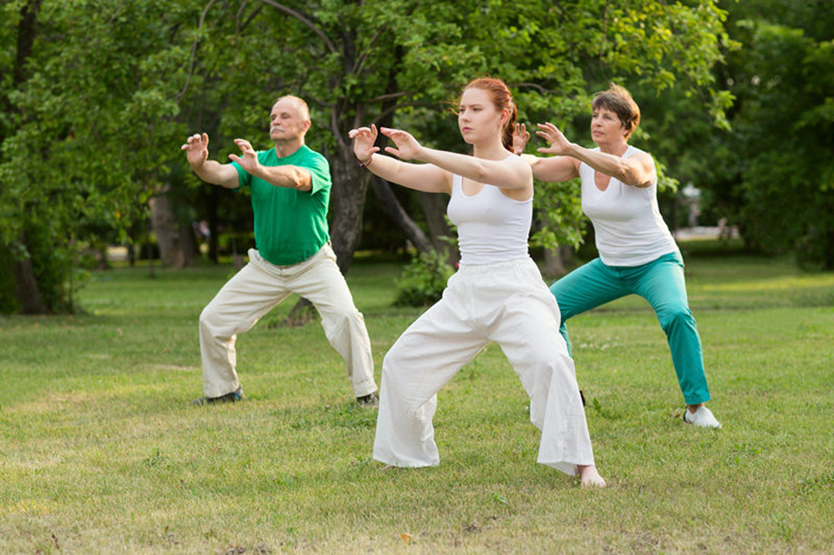Chinese Spiritual Cultivation
Chinese spiritual cultivation is a broad term that encompasses a wide range of practices and beliefs aimed at improving the individual's spiritual well-being. It is rooted in the traditional Chinese philosophies of Confucianism, Taoism, and Buddhism, and has been practiced for centuries. The goal of Chinese spiritual cultivation is to achieve a state of enlightenment or self-realization. This is often achieved through a combination of physical, mental, and spiritual practices. Some common practices include:
The goal of Chinese spiritual cultivation is to achieve a state of enlightenment or self-realization. This is often achieved through a combination of physical, mental, and spiritual practices. Some common practices include:
- Meditation: Meditation is a practice of focusing the mind and calming the thoughts. It can be done in a variety of ways, such as sitting quietly, walking, or chanting.
- Qigong: Qigong is a system of exercises that combines physical movements, breathing techniques, and meditation. It is said to promote the flow of qi, or vital energy, through the body.

- Tai chi: Tai chi is a martial art that combines slow, graceful movements with deep breathing. It is said to improve balance, flexibility, and strength, as well as promote mental clarity.
- Study of the classics: In Confucianism, the study of the classics is seen as a way to cultivate virtue and wisdom. The classics include texts such as the Analects of Confucius and the Book of Changes.
- Living in harmony with nature: Taoism teaches that humans are part of nature, and that we should live in harmony with it. This can be done by practicing activities such as gardening, hiking, or simply spending time in nature.
Chinese spiritual cultivation is a lifelong journey. It is not something that can be achieved overnight. However, with regular practice, it can lead to a deeper understanding of oneself and the world around us.
Here are some of the benefits of Chinese spiritual cultivation:
- Improved physical health: Many of the practices involved in Chinese spiritual cultivation, such as tai chi and qigong, have been shown to improve physical health by reducing stress, improving flexibility, and boosting the immune system.
- Reduced stress and anxiety: Meditation and other forms of relaxation can help to reduce stress and anxiety, which can improve overall mental and emotional health.
- Increased self-awareness: Chinese spiritual cultivation can help to increase self-awareness by helping us to understand our thoughts, emotions, and motivations.
- Improved focus and concentration: Meditation can help to improve focus and concentration, which can be beneficial in both our personal and professional lives.
- Greater sense of peace and well-being: Chinese spiritual cultivation can help us to achieve a greater sense of peace and well-being by helping us to connect with our inner selves and the natural world.
If you are interested in learning more about Chinese spiritual cultivation, there are many resources available online and in libraries. You can also find classes and workshops offered by local organizations and practitioners.
Cultivation is different from tai chi. Cultivation is a broader term that encompasses a wide range of practices and beliefs aimed at improving the individual's spiritual well-being, while tai chi is a specific practice that combines slow, graceful movements with deep breathing.
Cultivation can include many different practices, such as meditation, qigong, tai chi, study of the classics, and living in harmony with nature. Tai chi is one of the practices that can be included in cultivation, but it is not the only one. In tai chi, the slow, graceful movements are designed to help the practitioner cultivate qi, or vital energy. Qi is believed to flow through the body along meridians, or energy channels. By practicing tai chi, the practitioner can help to improve the flow of qi and promote health and well-being.
In tai chi, the slow, graceful movements are designed to help the practitioner cultivate qi, or vital energy. Qi is believed to flow through the body along meridians, or energy channels. By practicing tai chi, the practitioner can help to improve the flow of qi and promote health and well-being.
Cultivation, on the other hand, is not specifically focused on qi. It is a more general term that encompasses a wider range of practices and beliefs. The goal of cultivation is to improve the individual's spiritual well-being, which can be achieved through a variety of means, including tai chi.
So, while tai chi is a specific practice that can be included in cultivation, it is not the only practice that can be included. Cultivation is a broader term that encompasses a wider range of practices and beliefs aimed at improving the individual's spiritual well-being.


















![[ℕ𝕖𝕧𝕖𝕣] 𝕊𝕖𝕝𝕝 𝕐𝕠𝕦𝕣 𝔹𝕚𝕥𝕔𝕠𝕚𝕟 - I Think I Have Crypto PTSD](https://cdn.bulbapp.io/frontend/images/819e7cdb-b6d8-4508-8a8d-7f1106719ecd/1)



